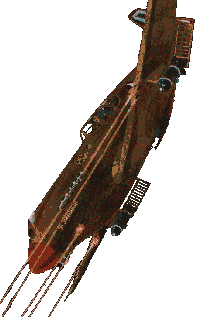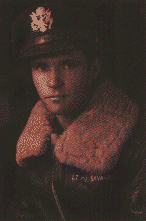

Mark A. "Doc" Savage concludes his book with SENTIMENTAL JOURNEY. However, as I started reading I found myself embarking on one. Anyone familiar with the "routine" of becoming a Flying Cadet (Pre-WWII) will be able to relate and probably relive some of DocÆs experiences. As I read the book it brought back many recollections of things almost forgotten after all these years.
Of particular note is the affection shown by Savage for some of those old airplanes. In their day they were "the best" and each had itÆs own distinctive characteristics, both flying and sound. Many of us are lucky that we became familiar with and had our unique experiences with them because they are a vanished breed. Those not familiar with those "old birds" will never know the thrill of the sound of screaming wires and struts; the wind up and high pitch of a propeller reving up to the tune of those jugs belching out flame and exhaust. They will never experience the joy of "feeling" an airplane fly. Those of us like Doc, will carry that knowledge on our last solo.
Following Savage through training and into the early phases of WWII, you canÆt but help to wonder how he, or any of us, ever made it. We all have had the number one co-pilot with us because, based on the things we experienced and lived, tell, or write about, the reader will be left with the belief that it was a case of "the blind leading the blind".
Savage had a varied flying career during the period 1941-45. He started out in dive bombers and then to the ferry command where he gained more valuable experience in flying through a number of different type airplanes and a constant mix of conditions under which they were flown. Maybe not as "glamorous" as combat, but a better opportunity to become a better airman. The reader has but to "ride" with him through some of these experiences to see how he gained in becoming an experienced airman, capable of more positive control through better planning.
Finally as one goes through the pages from beginning to end, you will sense the development and maturity of Mark Savage as was the case for so many thousands of young men at that time. He correctly conveys the experience of accelerated maturity brought on by the camaraderie and emotions of living from day to day; seeing your buddies die all around you and wondering when your number is to be called. Correctly, in my opinion, he shows attitude prevalent at that time of "fighting hard, then playing hard" because "tomorrow you may die". Such a scenario is the only way one could keep his sanity to face tomorrow. Mark Savage has taken us from "the beginning to end" of a rare emotional experience with airplanes and airmen.
Paul W. Tibbets
Brig General U.S. Air Force Ret.
Last updated November 23, 1996
Copyright © 1996 The Talisman Media Group, Inc. & MARKAS Publishing
ALL RIGHTS RESERVED